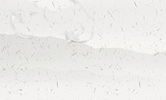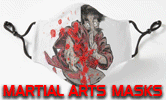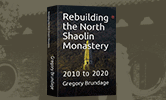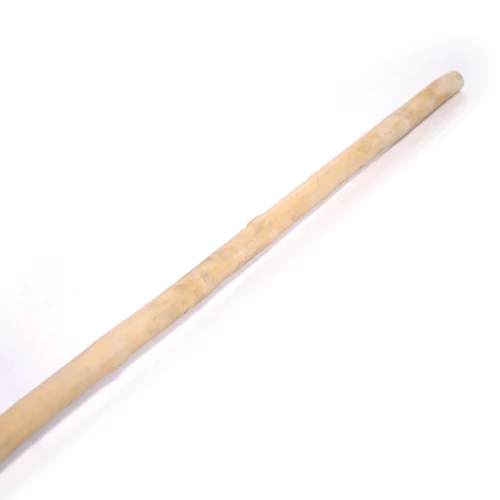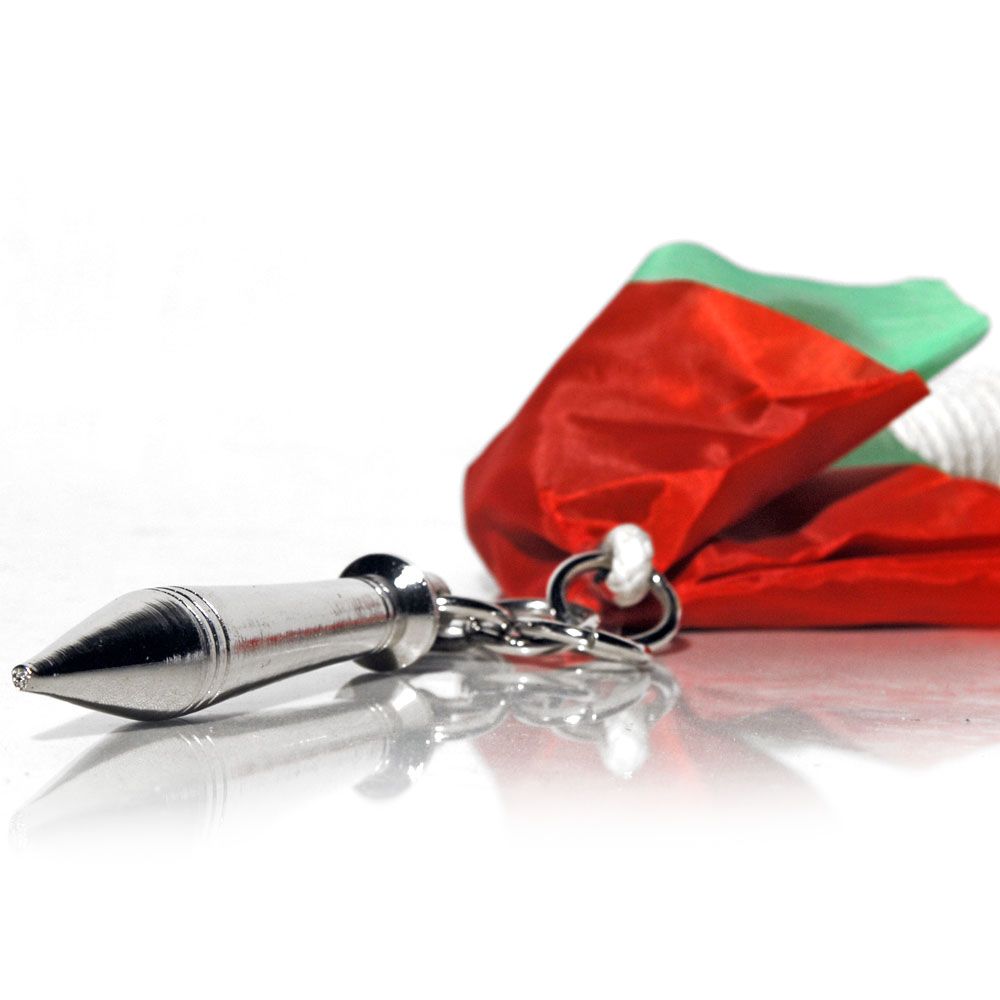Master David Charng and the Legacy of Shuai Chiao
By By Gene Ching (with Gigi Oh)
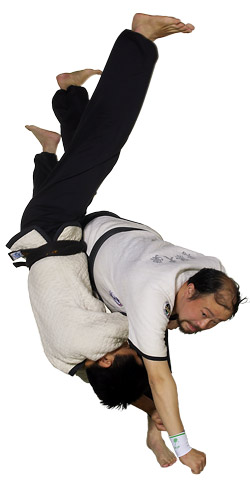 For a six-year-old boy, there's nothing like a day at the movies, especially when Grandpa treats you to ice cream. David Charng remembers the pure joy of just such a day. The Taiwan theater district was bustling. Colorful movie posters were everywhere. It was the best place in the world to be. But childhood innocence is a most fragile and precious treasure. It shatters in the blink of an eye. Thrilled and bedazzled, young David wasn't watching where he was going and BOOM! He ran smack into an advertising poster. Salty blood mixed with bitter tears, and his ice cream no longer tasted so sweet.
For a six-year-old boy, there's nothing like a day at the movies, especially when Grandpa treats you to ice cream. David Charng remembers the pure joy of just such a day. The Taiwan theater district was bustling. Colorful movie posters were everywhere. It was the best place in the world to be. But childhood innocence is a most fragile and precious treasure. It shatters in the blink of an eye. Thrilled and bedazzled, young David wasn't watching where he was going and BOOM! He ran smack into an advertising poster. Salty blood mixed with bitter tears, and his ice cream no longer tasted so sweet.
David's grandfather was understandably upset. The unforeseen twist of fate ruined a perfect day with his grandson. In frustration, he called out the shopkeeper to complain about his hazardous sign, but there was no sympathy for the bloody, bawling boy. "It's not your business, old man," the shopkeeper said gruffly. There's nothing more infuriating than an uncaring bystander when your child is bleeding and crying. Incensed at the shopkeeper's arrogance, David's grandfather struck a nearby electrical pole with all his might. BOOM! The thick pole came toppling down, showering the area with sparks and live wires. The horrified shopkeeper yelled for his lackeys to get this crazy old coot. Three young challengers rushed in, but none of them could land a single blow. Instead, the three men went flying through the air, tossed aside like discarded fruit rinds. Stunned by the violent spectacle, young David stood hypnotized. When he finally snapped around, his ice cream had melted all over his hand.
In every child's life, a moment comes when they see their parents and grandparents for who they really are. It's a moment of awakening, a step towards adulthood. On that day David realized that his grandfather was much more than the kindly relative who took him out to movies and ice cream. He was Charng Dong-shen (also spelled Chang Tung Sheng), the greatest Shuai Chiao master of his generation. He was known as the "Flying Butterfly" because he moved so quickly and gracefully in any direction, like a butterfly in a spring flower garden. David's grandfather was a hero, a proud warrior, a grandmaster of the martial arts, and the lineage holder of one of China's oldest and most effective combat styles. The next day, David began his Shuai Chiao training in earnest, knowing full well that, one day, the burden of that lineage would fall on him.
Horny Wrestlers
Shuai Chiao lays claim to being one of the oldest fighting styles of China. Its name has evolved over the centuries. For a period, it was even called xiang pu (literally "bearing, pouncing"). The characters are the same as for the Japanese art of sumo, and many trace the roots of Jujitsu and Judo to this art. Shuai means "throw" and Chiao means "horn" (mandarin: jiao). According to legend, Shuai Chiao is descended from one of the earliest recorded systems called jiao di (literally "horn support"), which dates back to the Warring States period (475-221 BCE) and was popularized by China's first emperor, the legendary Huangdi (221-210 BCE).
The use of the character jiao has two origins. First, ancient wrestlers wore helmets adorned with horns like Vikings; this has been supported by artistic depictions of jiao di fighters on archeological artifacts. Second, ancient grapplers were often compared to the locked horns of alpha-male beasts in heat. Today, another homophone for jiao is used. This character is second tone while the "horn " character is third tone; the second tone jiao means "fall". The Taiwanese spelling of "chiao" is predominant in the west, largely due to Grandmaster Charng Dong-shen. Grandmaster Charng was Shuai Chiao's first international emissary, traveling to America twenty times and Europe almost half a dozen times, just to spread this art. "He wanted everyone to know that Shuai Chiao was so beautiful, a special martial art," reflects Charng. "My grandfather could not speak English. He just showed his kung fu and let everybody know, Shuai Chiao is really good."
The Footsteps of his Grandfather
David followed his legendary grandfather for over two decades. They lived in the same big house, and Grandmaster Charng trained his grandson privately whenever he could despite the protestations of his grandmother that it was detracting from his schoolwork. Academic demands made it difficult for young David to fully apply himself back then. He had been accepted to Jian Zhong, Taiwan's most prestigious high school for boys, and the pressure was severe. Nevertheless, during that period, he also took on his first job teaching Shuai Chiao at the Cultural University. "Grandfather had many tournaments and seminars," recalls Charng. "My grandfather went together with me. (We) always did demonstrations (and) seminars. Going to tournaments, I know many different styles of fighting. Before high school, I always look and remember. After high school, I asked my grandfather why he teach me not so much kung fu, but he always took me to look (at) many seminars, shows (and) tournaments. Why? My grandfather told me 'If you learn kung fu, only kung fu, it's very strong, (but) just for fighting, just for tournament. (It's) very important, you keep the Shuai Chiao - you know different systems, how to teach many students, how to prepare for tournaments and demonstrations. This is a different style. If only kung fu, (that's) very strong, but you don't know how to give your kung fu to another student.' He didn't want me to be just a tournament person. After thirty, you're finished because you're too old."
Charng Dong-shen passed away in 1986 at age 78, leaving some huge shoes to fill. "My grandfather was a very traditional Chinese Muslim. He was really old and wanted to pass the Shuai Chiao kung fu to me. When my grandfather passed away, everyone talked, saying Grandmaster Charng was very strong, like a dinosaur. No. He doesn't want people to remember him as the strongest or bravest. He (would) rather (that) the people all know that he was the first person to push Shuai Chiao to the international stage. Also, he wanted to have Chinese martial arts be universal."
Two years after his grandfather's passing, Charng began teaching at national seminars and became a nationally-certified judge. Charng accepted a position as coach of the Central Police University Shuai Chiao Team, an unheard of honor since that institution required all teachers to have a college degree and Charng had not earned one at that time. Charng studied Japanese at Fujian University because of its outstanding reputation for language studies. Following the Sino-Japanese conflict, the Taiwanese still held a lot of resentment towards Japan, so Japanese seemed like an odd subject for Charng's studies. But he wanted to be fluent in Japanese to get a better understanding of judo. "In Taiwan, Shuai Chiao, judo and wrestling were practiced together," notes Charng. "Even with grandfather being so famous, Taiwan (is) still in the shadow of the Japanese. Judo is always stronger because (it's) in the Olympics. Kung fu in Taiwan is not developed that well."
When he did get his degree, Charng became a regular faculty member at the Central Police University. Charng also enlisted in the military just as his grandfather did (among other things, the "Flying Butterfly" was also a Special Forces commander). A little over a decade ago, Charng began to travel internationally, following in the footsteps of his grandfather to continue to propagate Shuai Chiao around the globe. Every two years, there is an international Shuai Chiao tournament in Europe now, and Charng always attends.
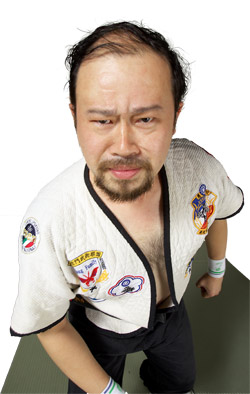 The Grandmother of Kung Fu
The Grandmother of Kung Fu
It is said that all martial arts originated at Shaolin Temple from the first Zen Patriarch Bodhidharma. However, Bodhidharma lived from 470 to 543 CE, over seven centuries after the earliest records of Shuai Chiao's mother style, jiao di. "Shuai Chiao is the oldest," boasts Charng, "so you can see many styles derived from it. You can see it's a treasure. Other systems will borrow from Shuai Chiao here, there, a little bit, to make their own system. Shuai Chiao is the grandmother of kung fu." For Charng, this is but one factor that makes Shuai Chiao more complete than most other systems which cobble together techniques and mix martial arts. Shuai Chiao has its own unique system for warm ups, solo and partner practice, qigong, conditioning and sparring. "Grandfather said, 'Can you have a monkey heart?' You can't because you're human. Every single movement is strictly Shuai Chiao. You can use this as a test to see which system is complete or not."
Furthermore, Shuai Chiao is split into three separate methods of training: Gongli Chiao ("basic work horn"), Houbu Chiao ("live step horn") and Sanshou Chiao ("free hands horn"). "Gongli Chiao is just exercise," explains Charng, "learning to throw people and be thrown, a hobby. Houbu Chiao is tournament style. You learn to compete." Sanshou Chiao is for the street. It's the real no-holds-barred material for those who may have to use their martial skills in actual combat. Charng makes a clear distinction between tournaments and street fighting. "How (are) you going to throw a person down? Today, you have the Shuai Chiao jacket that doesn't tear. You have to start with a punch and a kick. Punch, you lose your balance. I take a very good angle, finally you fall down. This is Shuai Chiao. Mix punching, kicking and wrestling together - not just take, not use the uniform, not even necessary to use qinna (joint locks)."
"Tatami mats are good for tournaments, but in the street, (it's) very hard. (This is) sports style versus martial arts style. For sport, you have a very good tatami, but it's only good for sport and tournament. You (will) hurt yourself on the ground. Also, when you are on the street, you must consider that there are other enemies. Distinguish those two because training will be different. In Taipei, I have a kung fu school, but every Saturday morning I train my students - 50 to 60 students - in the park, directly on the asphalt."
Sanshou Chiao has further divisions according to Charng. "There are a lot of methods. If there is a girl who wants to do self defense, you don't really train break falls. They use a different way. They learn to escape in the very shortest time, (and I) don't teach them continuous attacks. For those who will be bodyguards, Sanshou Chiao is combined with strikes. 'Arrest' style is learning to capture, not to hurt people necessarily. I cannot teach the police department (to be) so mean. Their job is just to catch people. You cannot teach them killing methods they cannot use. It depends on the person learning."
No matter which methodology is used, Charng stresses that Shuai Chiao qigong is a critical part of the practice. "When you finish, you always have to go back to your original state. That's what I tell my police students. When you finish practice - maybe hard, exciting - (then go) directly to study, impossible. When you finish your Shuai Chiao class, five minutes, three minutes, practice qigong to relax. If you are an office worker, you must relax. If not, maybe you (will be) fighting with your boss."
The Street versus No-Holds-Barred
Given the rise in popularity of no-holds-barred contests like Ultimate Fighting, Pride, K1 and others, Charng's years of military and police coaching has made him skeptical about their marketing. These spectator sports all fight on a modern version of "tatami mats," which in Charng's eyes undercuts their validity as real street fighting methods. "When fighting in the street, some people want to kill you. It can be any situation, maybe together with your daughter, your son, your wife (or) your father. If you cannot defend yourself, maybe your wife, your children, (will) be hurt. At that time, fighting in the street, you can do anything - 100% animal style."
"No-holds-barred looks very animal, but in fact, no. It's like the Roman Coliseum, like gladiators. This is human nature. Number one: human beings like blood. Number two: humans adore heroes. Just like you eat and breathe, this is the nature of the human being. As long as there's more cruelty, people like to watch. More blows, more cash. It's a very good industry. That's why many associations push it - fighting, fighting, money, money.
"If you want to enlist some students (to be) very hard like K1 style, (it's) very easy. You just use mafia style. You kidnap their father, mother and wife and put them on the side. Tell them to fight three fights. If you lose one fight, kill your father first. Then kill your mother and kill your wife. But instead, if you win one fight, you get a million dollars, second, another million, third, another. Then you create a champion, under-the-table style. If you lose, maybe I cut off your one hand - maybe not your hand, maybe your sister's hand."
"Other martial arts depend on your purpose. No-holds-barred are because appearance; cruelty makes money. Tae Kwon Do has their own rules. They have their own purpose. Chinese martial arts have its purpose. We look at health benefits and other benefits too. We cannot compete in that way. In the Yuan and Ming dynasty, Chinese were very cruel and also used Shuai Chiao as a show - people fighting like animal style. But we didn't follow that path. If you only teach cruelty, then you're going to lose some original benefits or other things. You're going to be very narrow and maybe there's no Shuai Chiao anymore.
Click here for Feature Articles from this issue and others published in
2006 .
Written by By Gene Ching (with Gigi Oh) for KUNGFUMAGAZINE.COM
![]() Print Friendly Version of This Article
Print Friendly Version of This Article

